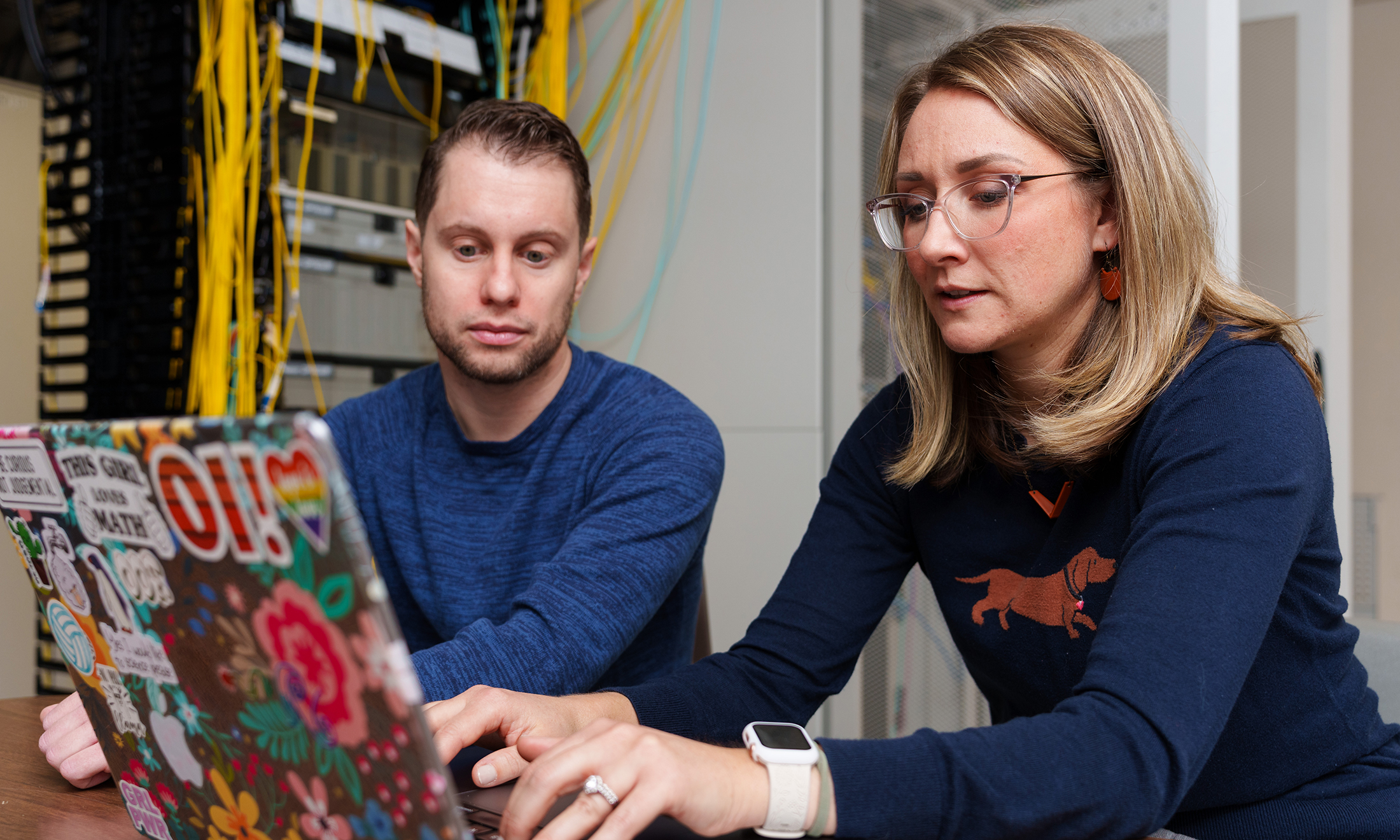Flowing into Sustainability
Dr. Sarah Beetham aims to improve models of gas-solid flows, enhancing energy efficiency and sustainability in industries like biofuel and waste management.
A growing number of companies worldwide is embracing sustainable and energy-efficient technologies by adopting cleaner energy sources and improving manufacturing processes. These advancements not only boost profitability but also significantly reduce their environmental impact.
“Industries like petrochemical refining, pharmaceutical production, and waste-to-energy facilities heavily depend on gas-solid flows. By accurately predicting the interaction between gases and solids, we can enhance process and design efficiency, leading to reduced energy usage, minimized resource waste and lower operational costs," says Sarah Beetham, Ph.D., assistant professor of mechanical engineering, who has recently secured an Engineering Research Initiation (ERI) grant from the National Science Foundation to further her research on simulating and modeling gas-solid flows.
The demand for such research is substantial. In various industrial and natural settings, there are complex mixtures of gases and solids that strongly influence each other. When there is a lot of solid material, it affects how gas and solids move together, creating a large-scale heterogeneity (such as clusters) in the flow, which then generate and sustain turbulence (i.e., chaos) in the gas. This interaction impacts how fast chemical reactions proceed, how heat moves and the way in which particles move. Despite the significance of these types of systems, it is still a challenge to predict their behaviors accurately. Often, since engineers must rely on overly simplified models, it is hard to predict risks or improve designs for a cleaner future.
Dr. Beetham’s preliminary research has already explored the effect of heterogeneity in flows with uniform-sized particles (monodisperse) and developed models to capture these behaviors. Dr. Beetham readily admits, assuming that all particles are the same size is an oversimplification that doesn't reflect real-world conditions. Consequently, the new focus is to expand the understanding of flows with particles of different sizes (polydisperse) and address the existing gap in modeling and predicting their behavior.
Utilizing Matilda — the Oakland University central HPC Linux-based cluster — Dr. Beetham aims to identify key factors that control the behavior of systems with particles of different. A new modeling approach and to develop accurate, easy-to-use models that work for different systems.
Since gas-solid flows with different particle sizes are found in many important areas — like biofuel production, volcanic flows and microplastic pollution — the development of better models will have a big impact. In particular, it will help engineers create better solutions for environmental and societal problems.
“Predicting volcanic eruptions is a good example. Pryroclastic density currents (PDCs) are fast-moving, gravity-driven flows of particulate matter, resulting from the collapse of an ejected volcanic column. PDCs are the most destructive volcanic process and can cause extensive damage to human settlements, infrastructure and ecosystems. Formulating accurate hazard prediction models is essential, due to their impact on society and the environment, helping in disaster preparedness and risk reduction efforts,” explains Emily Foster, a mechanical engineering graduate student, who works with Dr. Beetham on this project.
Dr. Beetham’s expectations for this project represent a critical scientific step toward the accurate prediction of complex, multiphase flows. Furthermore, by developing robust and stable methodologies to model these complex flows, she hopes to provide tools that are adaptable across different scenarios and conditions.
Dr. Beetham is also researching other complexities that arise in industry and environmentally-relevant flows. Two such studies, conducted with Lee Rosenberg, Ph.D. student in mechanical engineering, target the combustion of iron microparticles for clean, renewable energy generation and the simulation and modeling of heat transfer in gas-solid systems under a range of conditions.
Since better understanding and modeling of gas-solid flows can lead to more efficient, safer and environmentally friendly technologies, Dr. Beetham invites new collaborations, particularly ones that are multidisciplinary and have a focus on sustainability or the environment. Contact her at [email protected].

 December 11, 2024
December 11, 2024
 By Arina Bokas
By Arina Bokas



